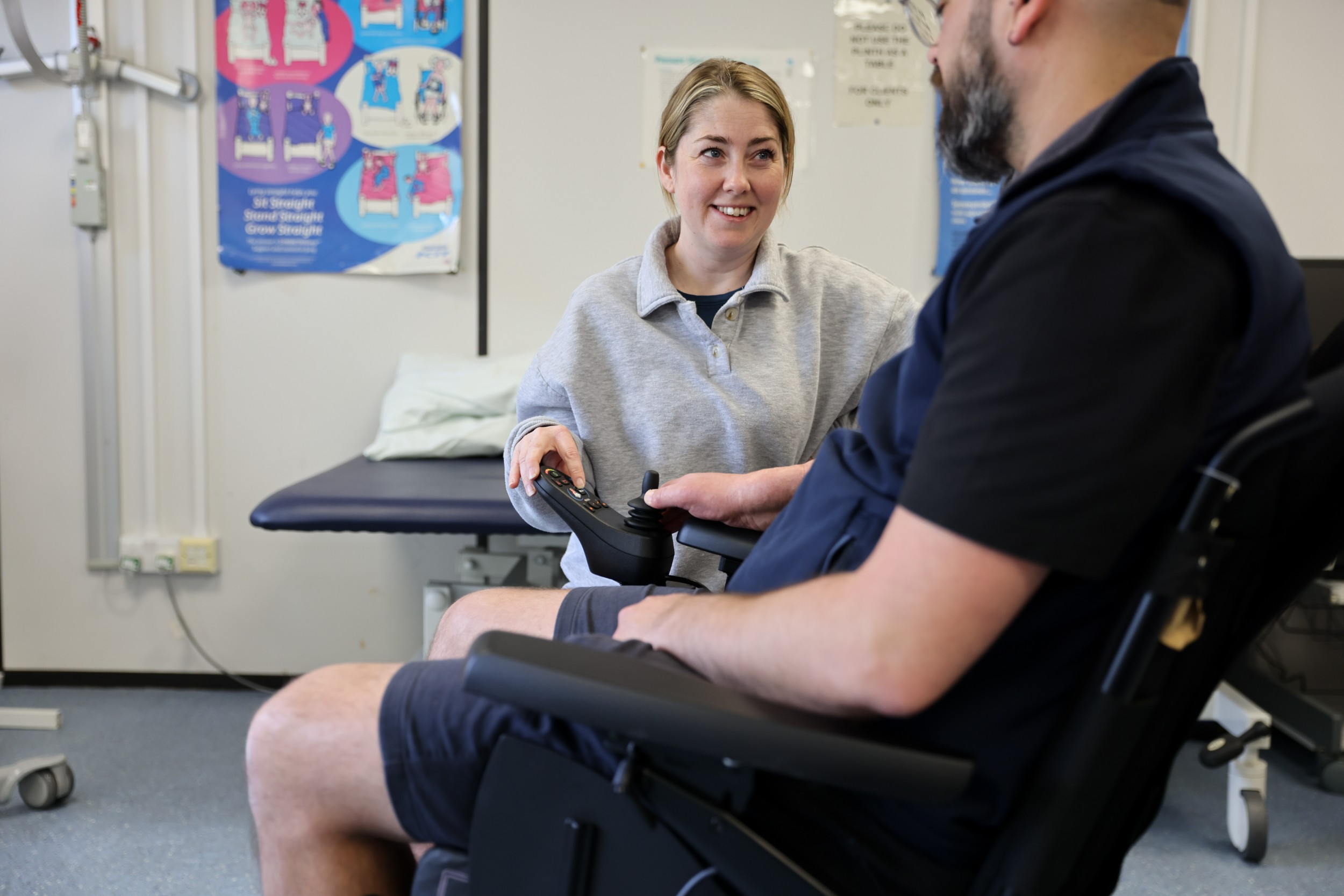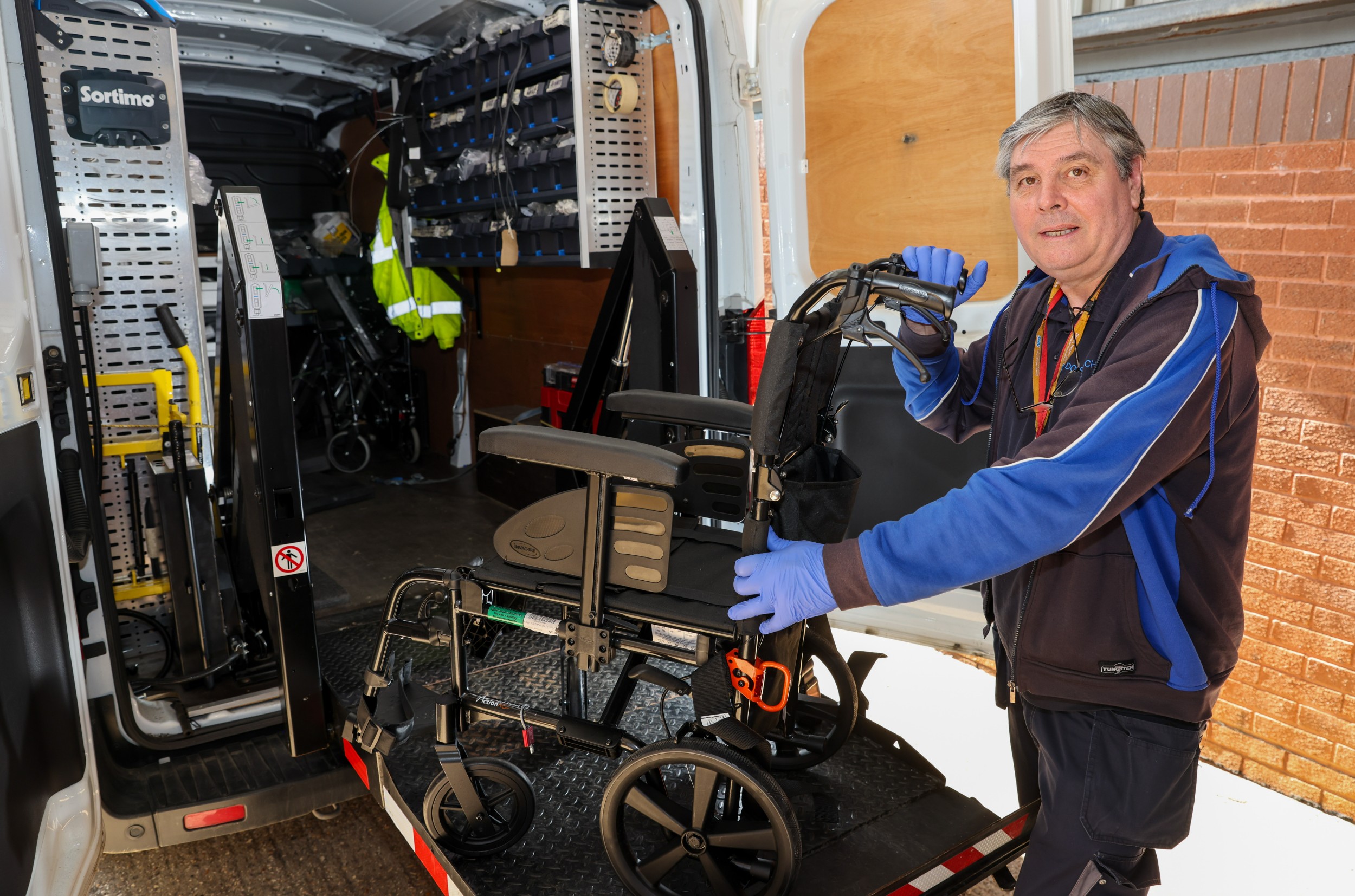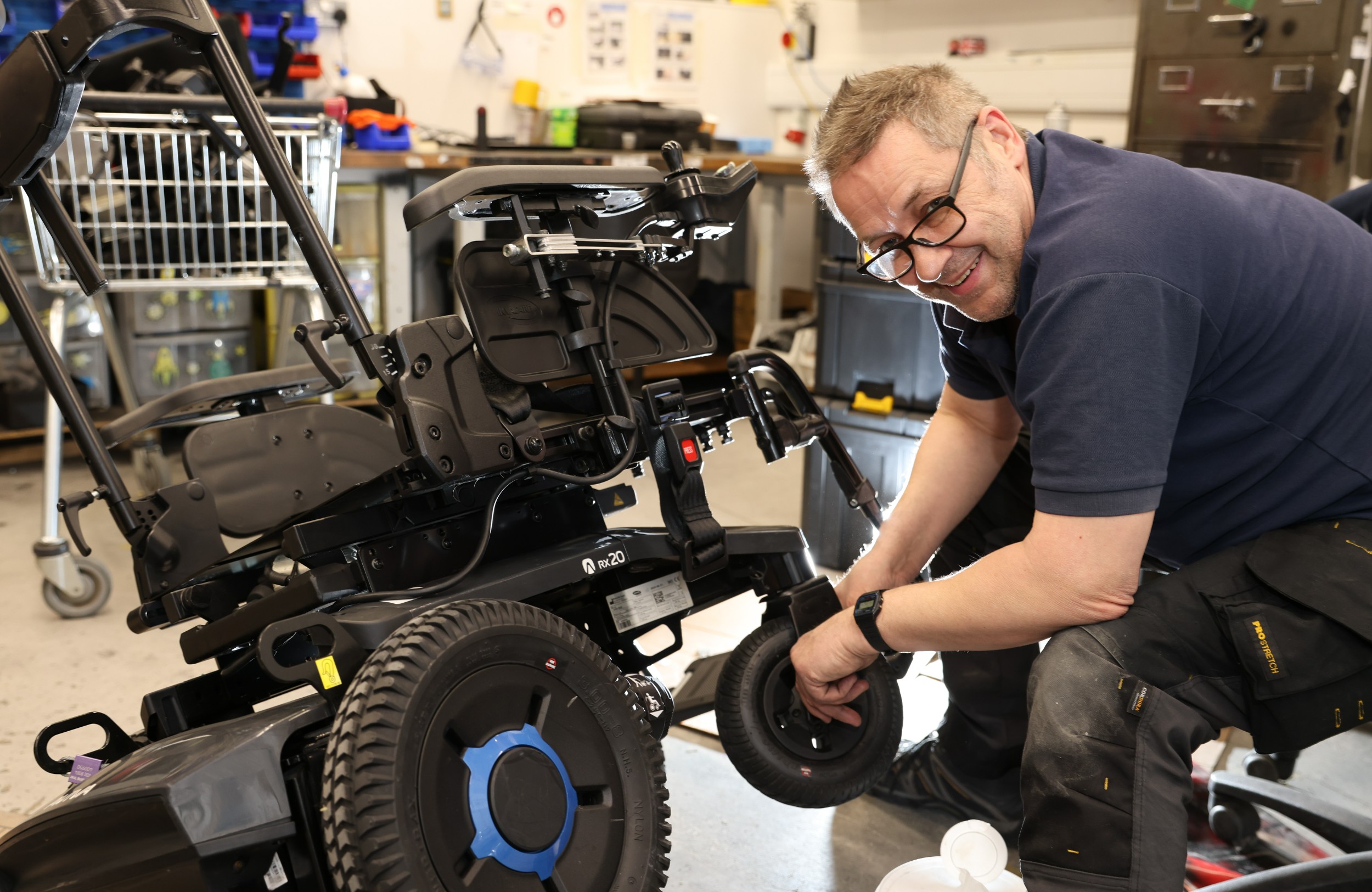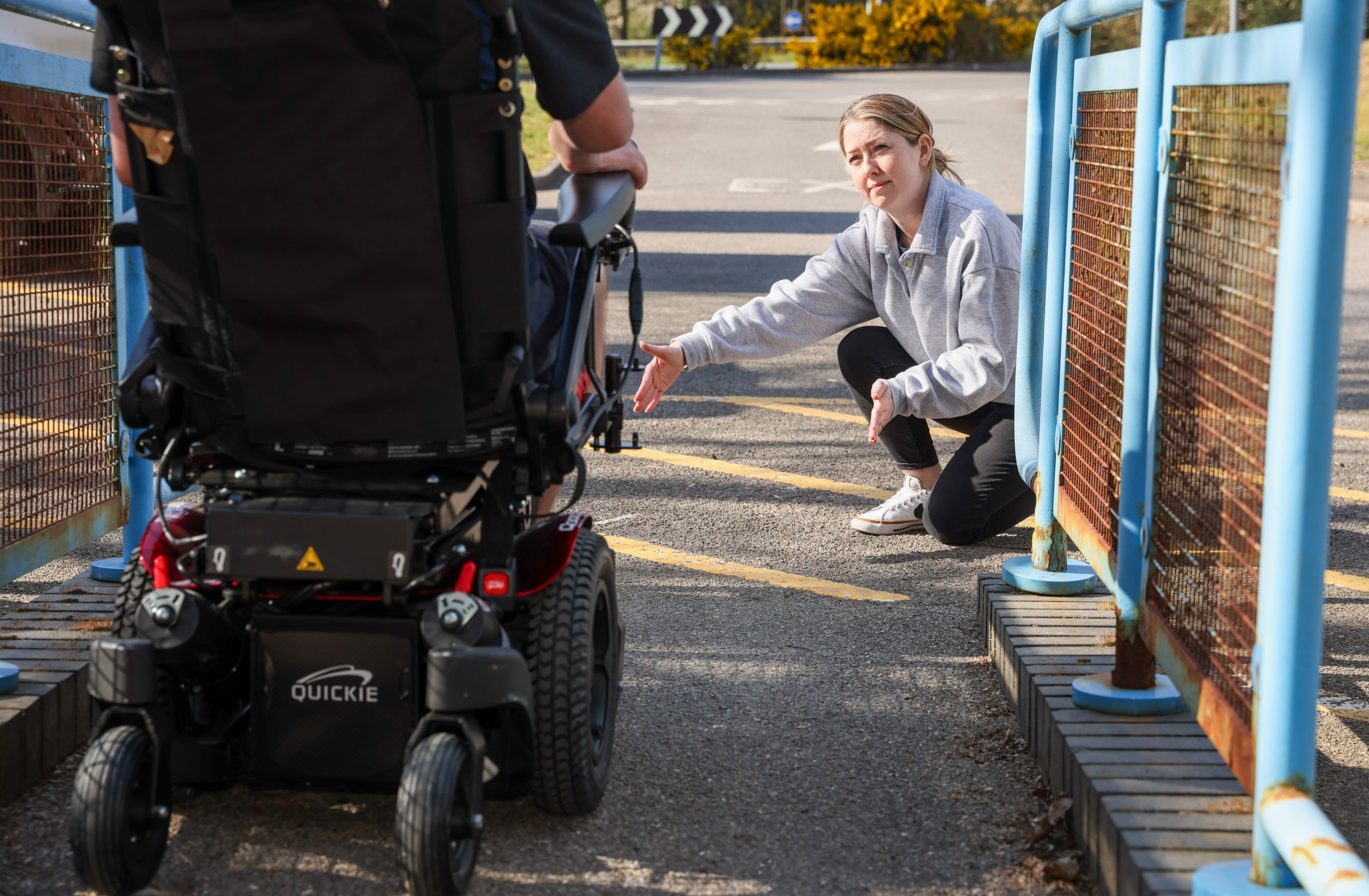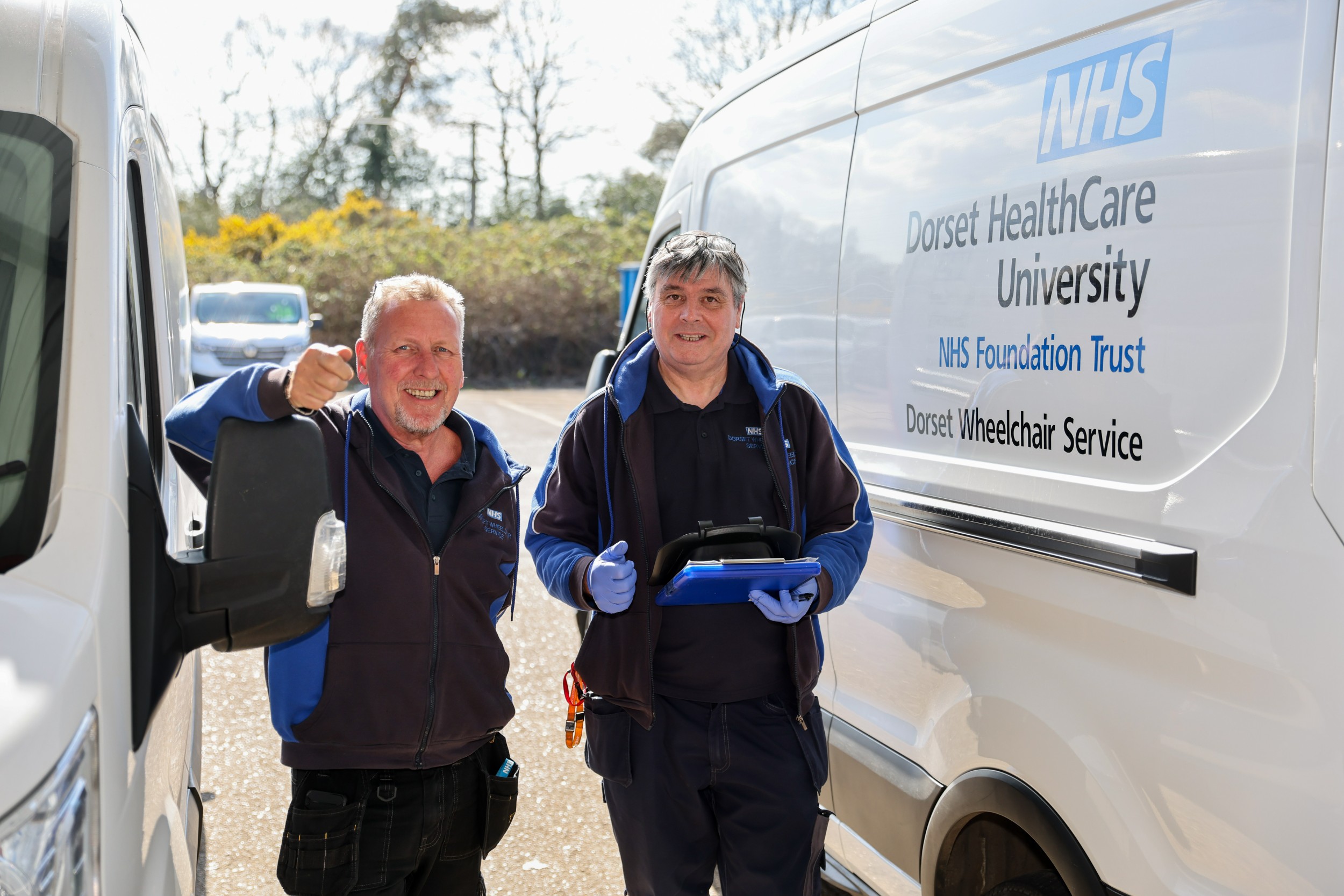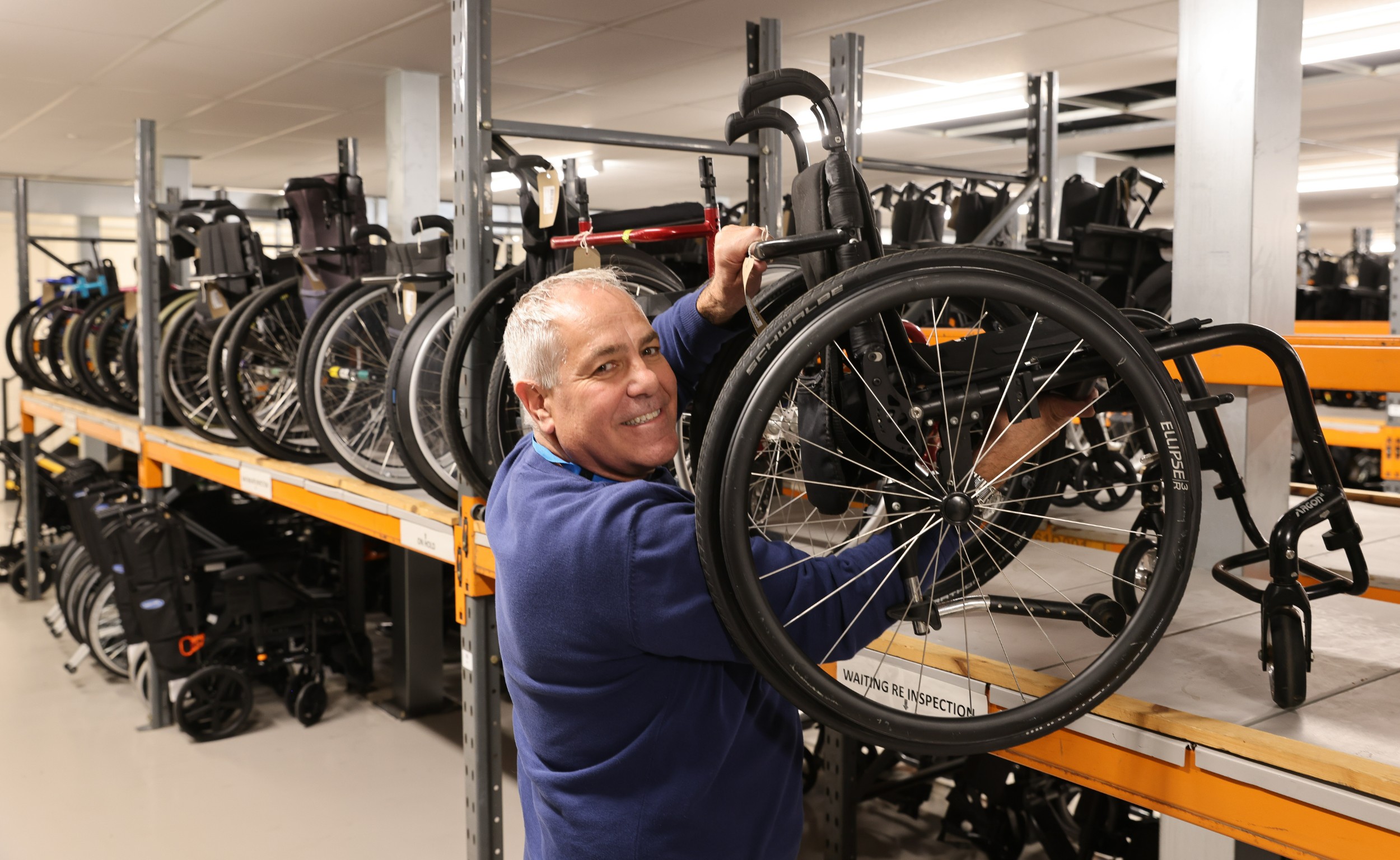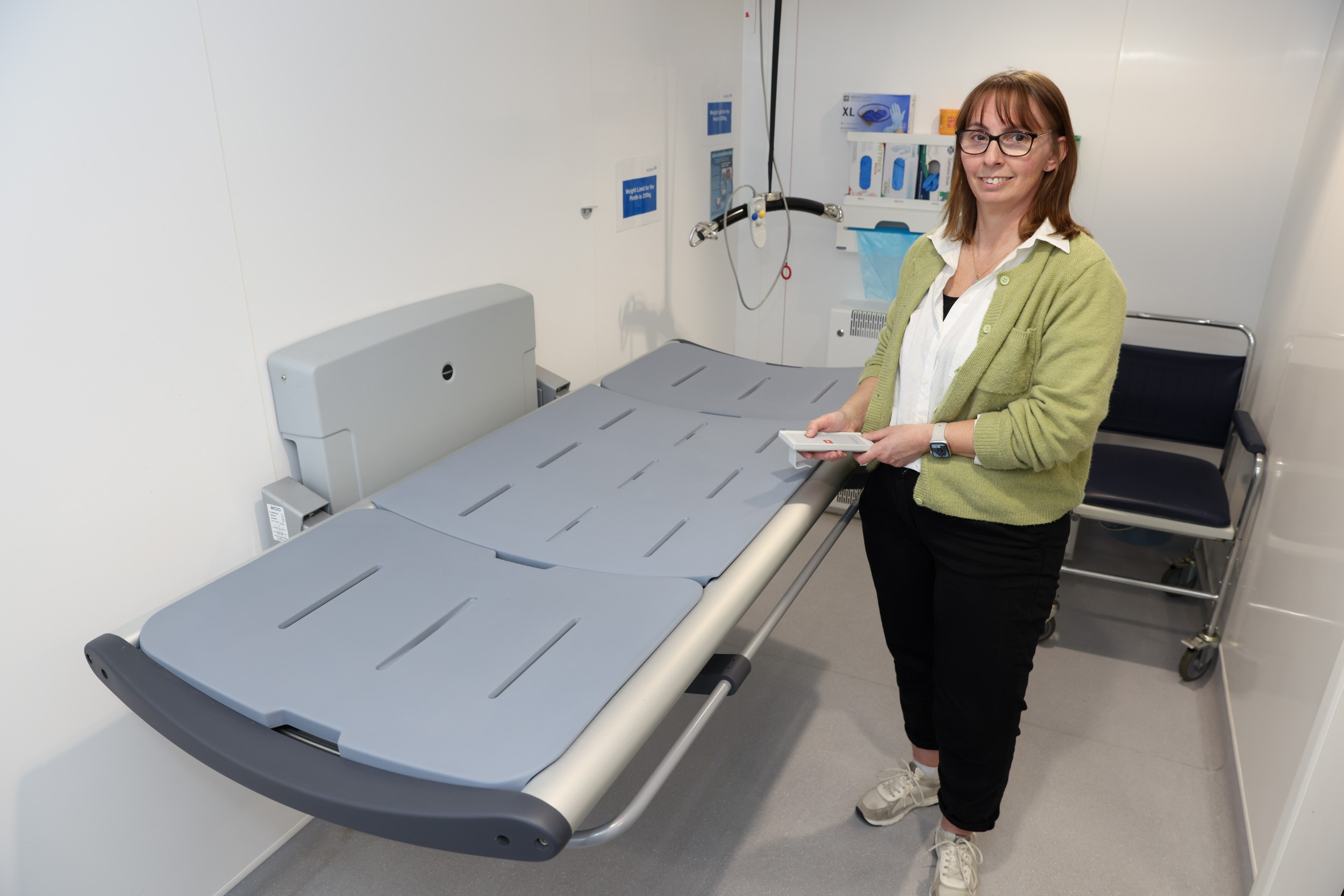The only official page for free NHS wheelchair loans in Dorset.
Dorset Wheelchair Service provides wheelchairs on loan to Dorset residents of all ages who have a long-term need for a wheelchair to increase their mobility and independence.
We operate from two centres, one in the east of the county at the Acorns Building, St Leonards Hospital, and one in the west of the county in Dorchester. This enables us to cover the whole of Dorset.
Clients are assessed for their individual wheeled mobility in accordance with our NHS eligibility criteria. This will be done by a healthcare professional, usually within the service itself or from another organisation and accredited by the service.
We have a range of staff including occupational therapists, physiotherapists, rehabilitation engineers, therapy and rehab engineering assistants, repair technicians and administration staff.
We operate a clinical duty service every day and clinical referrals are triaged within two days. This ensures a timely approach to providing standard wheelchairs and cushions and ensures that referrals for non-standard equipment are on the correct pathway to help prevent delays in provision. The duty therapist is also available to provide advice and urgent assistance wherever possible.
Clinics are run in a variety of venues, usually at one of the service centres, so that accurate physical assessment can take place. We also work closely with other health professionals to ensure our clients benefit from multi-disciplinary care.
Where appropriate, an individual may be supplied with a wheelchair/buggy from within our NHS approved range. Wheelchairs can be loaned entirely through the NHS with no additional funding from the individual. However, with additional funding, elements of the wheelchair can be personalised, or even purchased entirely, through use of the personal wheelchair budget.
Wheelchairs are adapted if necessary to meet an individual’s specific needs and appropriate postural seating is prescribed and provided. This particularly applies to children, whose equipment must allow for growth and any individual postural needs. Unfortunately, we are not able to provide wheelchairs solely for use at work or solely for use in education.
Our St Leonards site has a Changing Places toilet with changing facilities. Our site in Weymouth is open on Mondays and Thursdays.
If you would like us to loan you a wheelchair, you'll need to be registered with a GP in Dorset and can refer yourself by clicking 'How to access this service' below.
If you are a healthcare professional, and would like to refer your patient or make a request for specific equipment, click 'Healthcare professionals' below.
Key information about this service
As with all NHS wheelchair services, we work to criteria set down by our commissioning body. This is to ensure equity in provision to all our clients. Please read our eligibility criteria.
Self-Referrals
Clients can self-refer in to Dorset Wheelchair Service, through our e-referral form. The form should be completed in full. Once completed, the form is automatically emailed into Dorset Wheelchair Service.
If client does not have access to the website, an email attachment or paper copy can be sent to the client for completion by them and then returned to Dorset Wheelchair Service.
New/initial referrals
These are referrals for clients that are new and not previously known to the service. This is via the client self-referral form or the professional referral form.
Referrals can be made by the client or any registered health care professional who takes responsibility for the prescription detail and risk assessment issues and who may have also attended the services Wheelchair Training (For professionals only).
Any healthcare assistant or support staff needs to have the professional’s referral form countersigned by a registered HCP or referrer, unless they have attended the training.
We are unable to accept professional referrals where the minimum data set is not supplied. Incomplete profession referrals are returned to the referrer with missing information fields highlighted. The minimum data set is as follows:
- Client's name, address, date of birth and contact details
- Referrers name, address, contact details and signature
- Name, Address and contact number of clients GP
- Clients’ diagnosis and resulting disability
- Clients’ height and weight
- The client’s goals (i.e. how often and where they will use the wheelchair)
- Type of wheelchair or type of assessment required.
Existing client referrals
These are referrals for clients who are known to the Dorset Wheelchair service and may already have equipment supplied by the wheelchair service. These referrals are accepted from GP’s, accredited referrers, Health care professionals, clients themselves or their representatives.
Existing clients may be re-referred for review by telephoning or emailing the service. A new referral form is not required, unless significant change in condition or requesting a change from a manual wheelchair to a powered wheelchair.
Wheelchair pressure relieving cushions
Pressure care cushions are only supplied for use in an NHS wheelchair or buggy and not for any other pieces of equipment in a client’s residence. The only exception to this, is where a clinically appropriate private wheelchair is in place and a pressure cushion is required and is suitable to be used on the private wheelchair to meet the clients pressure care needs in the wheelchair.
Electrically Powered Indoor Wheelchair (EPIC)/ Electrically Powered Indoor/Outdoor Wheelchair (EPIOC)
Referrers must add specific information as to the clients need for an EPIC/EPIOC and include any relevant home environmental access issues.
Please refer to the criteria for issue of this equipment prior to completing the referral form.
What happens when a referral is received?
Referrals to the service are checked for all essential information. Any incomplete referrals are returned to the health care professional/referrer with missing information fields highlighted.
Client self-referrals will not be returned to the client, initially a clinician will contact them to gain further information required. Referrals not meeting the prescription criteria will be rejected and a letter sent to the referrer and client with an explanation, referring to the criteria.
Correctly completed referrals for new clients are registered onto the service database and given a specific client reference number. Referrals for existing Wheelchair service clients are logged onto their existing notes and a re-referral raised.
All registered referrals are passed to the clinical team for triage. Where there is sufficient information to safely supply equipment without the need for further assessment, equipment will be ordered, and delivery will be arranged direct to the client.
Further information may be required from the client, GP, Healthcare professional and Dorset Care Records, to take the most appropriate action.
Where a further assessment is required the referral will be prioritised and added to the waiting list.
Timescales for assessment and equipment provision
We work within an 18-week pathway for the assessment and delivery of all adult and children’s equipment; this is measured from receipt of referral to delivery of equipment. The exception to this, is end-of-life clients, who are triaged as a priority.
The assessment process
Where will the client be seen?
- We currently operate daily clinics at Two sites, one based at Acorn Building, St Leonards Hospital, the other based at Linden Unit at Westhaven Hospital in Weymouth. Transport is available for eligible patients; this can be booked by the service on client’s behalf or by the client or their representative.
- Clients' own homes, hospitals, school, work or day care settings if appropriate. Clients can be visited at home ONLY if they are unable to travel for medical reasons, due to their condition or the type of wheelchair assessment requires them to be in their home environment. Eligibility for a home visit will be determined by the triaging clinician.
Who will see the client?
- A therapist and / or rehabilitation engineer, therapy assistant or rehabilitation engineer technician as appropriate, based on the referral.
- Other healthcare professionals may also be invited to attend, where appropriate.
The client can choose to have a family member, carer or friend present at the assessment.
The assessment appointment
- At the assessment a functional and postural assessment will be undertaken.
- A client’s goals and expected outcomes for mobility will be discussed.
- Verbal consent will always be obtained.
- Equipment may be trialled, and options discussed, taking into account clinical and functional needs and client’s goals.
- Personal Wheelchair Budget will be Discussed
Options following the assessment:
- issue of equipment from stock, if available.
- order of equipment if appropriate.
- Personal Wheelchair budget option chosen
- further appointment if necessary to trial, assess or provide equipment that needs to be obtained from manufacturers or is bespoke.
Reviews
Reviews are arranged as requested by existing clients or clinical staff. Clients, carers and professionals should make direct contact with the service if there are any changes that indicate that further intervention by the wheelchair service is required.
Videos
FAQs
Useful documents
Useful external links
- Red Cross (for short-term loans)
- Access Dorset
- Shopmobility / Wheels for Freedom
- Blue Badges in Bournemouth/Poole and Dorset
- Disabled Living Foundation
- Motability
- Medicines & Healthcare Products Regulatory Agency
- Department Of Health
- Living Well Services available in Dorset
- Access to Work
- Driving assessment centres
Let us know what you think
We would love to hear from you and know what you think of our service. Perhaps you would like to tell us about something that went well or tell us about something you think we could have done better? If so, you can either phone 01202 892874 or email dhc.
